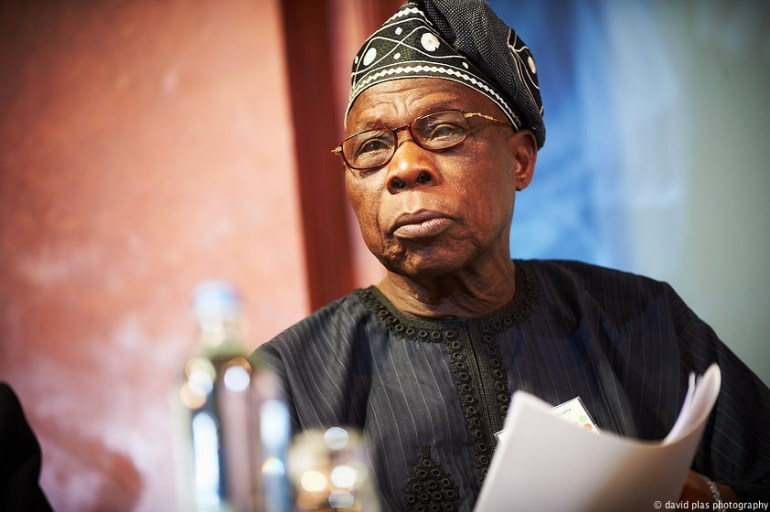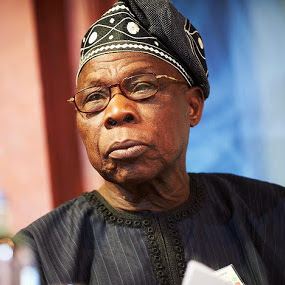News
The Africa we want needs strong leaders and stronger institutions
In Africa, there are too few success stories to learn from and emulate. When there are we must make sure the continent and the world pay attention, says former President and Brenthurst Chairman Olusegun Obasanjo.

In 1999, two years after I won the presidency in the first democratic election in Nigeria since 1979, the Economist put out the cover on Africa titled 'A Hopeless Continent'. Ten years later, and four years after I handed over power, the Economist changed its tune with a cover depicting 'Africa Rising'.
Africa is both of those things, and several steps between. The continent is not, and never has been, one thing. Its 55 states are diverse and differentiated, big and small; commodity rich and dependent, landlocked and littoral; water stressed and abundant, densely and sparsely populated. Africa defies most sweeping descriptions, except when it comes to the package of reforms that we have to relentlessly pursue.
My lesson from my eight years at the helm of Nigeria is that both strong leadership and strong institutions are critical for recovery and reform. We worked assiduously to reduce debt, instil domestic governance, ensure a better aid deal for Africa, and improve the terms of trade. With other leaders, I realised the importance of building continental institutions, both as a means of upliftment and of ensuring that the spectre of military intervention could be laid to rest. To do that, I also had to act decisively at home, since Nigeria had been the site of multiple coups d'etat since independence in 1960.
The military's intervention in Nigerian politics fouled the political air, caused instability and uncertainty, the destruction of lives and properties; resulted in a civil war, and left the country divided internally and isolated externally. This peaked when General Sani Abacha pursued his programme of self-succession and life-presidency.
Nigeria was impoverished economically, politically, intellectually and culturally. It became a pariah state. Nigerians deserted in droves and sought refuge all over the world. Nigeria was left prostrate. Those who raised their voices were either assassinated or put in jail — myself and my second-in-command as military head of state, Shehu Yar'Adua, included. But for international intervention, we would have been killed.
The sudden death of Abacha was providential, opening the gates of prisons and political reform, and reversing the exodus out of Nigeria. General Abubakar Abdulsalami, who succeeded Abacha, lost no time in releasing political prisoners and created a conducive atmosphere for Nigerian exiles to return home. He also opened the way for another attempt at democratic dispensation. It was in this new democratic experiment that I was persuaded to contest for the presidency of Nigeria.
On assuming office as president, I decided to put an end to these incessant coups. I asked the military to submit the list of all officers who had either participated in or benefited from the dividends of coups by being appointed to political office as governors or ministers. Not knowing what the list was meant for, the military faithfully compiled it and submitted it to me.
Ninety-three officers in all were given six hours' notice of retirement on a Friday, and ordered not to spend the Friday night in uniform or in barracks to prevent adverse reaction. I knew that an officer out of uniform and barracks is like a fish out of water, and their power and influence would be greatly diminished.
The retirement of these officers in one day was salutary. It meant that taking part in a coup or benefiting from one could catch up with you. Their retirement did not stand in the way of any of them entering public life or making progress in it. Some of them later entered politics and became elected governors; some went into parliament; others got appointed as ministers or ambassadors.
The idea was not to punish them for life but to exclude them from positions in the military where they could be coup planners, coup plotters, coups executors or coup beneficiaries.
The lesson is clear: We build strong institutions, and establish norms, with strong leadership.
The challenge today in Africa is that we have too few success stories to learn from and emulate. When we do encounter successes we must make sure the continent and the world pay attention.
One such recent success was the successful democratic election held by Malawi in June 2020. This election took place during the Covid-19 pandemic out of the gaze of the international community.But it was closely monitored and observed by Malawians themselves who ensured that it was free, fair and credible.
There are very few leaders who can overcome the combination of powerful, courageous independent courts and institutions and a vigilant people to extend their unjust rule.
Research clearly shows that most Africans want a democratic system of government because, more often than not, the best-intentioned dictators end up holding onto power. We Africans have a duty to see to it that there is no place on this continent where coups — and sham democracies — are tolerated.
The original article was published in DM168.



